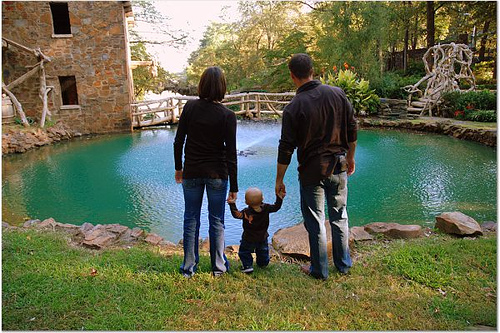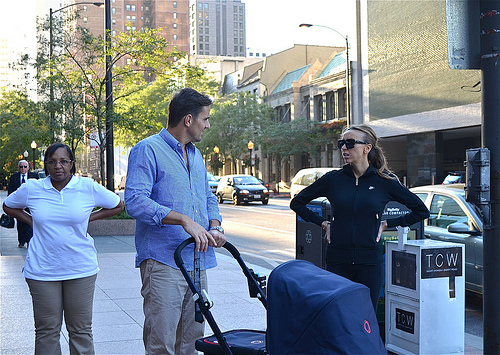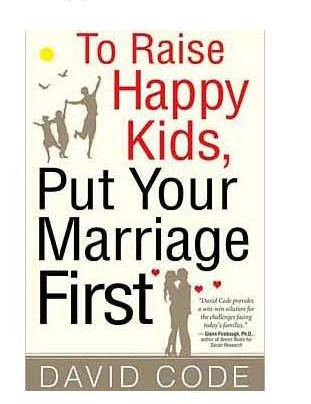“Fashion Police” host and television personality Giuliana Rancic came under fire last week for comments she made regarding her relationship with her husband, real estate developer Bill Rancic. A new mom, Rancic stated the following in an interview with US Weekly: “We’re husband and wife, but we’re also best friends, and it’s funny because a lot of people, when they have kids, they put the baby first, and the marriage second. That works for some people. For us, I find, we put our marriage first and our child second, because the best thing we can do for him is have a strong marriage. So we’re even stronger than we ever were before and even imagined we could be.” Immediately, the claws came out and Rancic was ripped apart for sharing her personal point of view.
The Rancic family
Unfortunately, this is not the first time Rancic has been under fire. Women and the press have targeted her for years, questioning and criticizing her every life choice. Before welcoming baby Duke last summer via gestational surrogate, Rancic struggled for years with infertility, sharing the highs and lows on her Style Network reality show “Giuliana and Bill”. During her struggles to conceive, Rancic felt the joy of finally becoming pregnant turn to despair after learning she had miscarried. Prior to her third attempt at IVF, Rancic was diagnosed with breast cancer. Somehow, many felt it appropriate to blame her for both her infertility issues and her cancer. Women on message boards and comment feeds accused Rancic of working too hard, putting her career over her desire to be a mom. Some said that Rancic was far too skinny to become pregnant; when Giuliana defended herself, pointing out other skinny women like stylist Rachel Zoe and TV host Kelly Ripa had no problem getting pregnant, she was accused of being “delusional” and of refusing to give up her body to have a baby. Even stories about Rancic’s breast cancer struggle vacillated from crediting her IVF treatments with her early cancer detection, to stating that she got cancer due to the fertility treatments themselves. In the court of public opinion, Rancic simply cannot win.
Even after electing to have a baby via a gestational surrogate, Giuliana remained under heavy scrutiny. When she went to London to cover the Summer Olympics, Rancic was blasted for traveling so close to her baby’s due date. In fact, Giuliana planned to return to the United States three weeks prior to her baby’s due date, and would never have been more than a private-plane-ride away should the surrogate go into labor early. Still, Rancic received many jabs similar to this one: “Wow. Kid better get used to coming in second. Maybe this is why God didn’t want her to get pregnant!”
Those who already felt Rancic was putting her baby second behind her career were no doubt horrified to hear her state last week that she puts her relationship with her husband before her baby. However, I agree with her entirely, for many reasons. First, in most first marriage/partner relationships, the couple joins together long before deciding to have children. The fact is your partner was there before you had children, and your partner will be there long after your children have grown and left home. If parents do not keep their bond and connection growing while the children are in the home, what will remain once the children have gone? Unfortunately, my marriage ended in divorce. Through this experience, I spent three years on a message board with others going through divorce. Although it was not the issue in my marriage, I witnessed countless stories of couples growing apart as they moved in different directions, one running the kids here and there, one focused on career, neither focused on the other. Sadly many empty-nesters, when finding themselves alone at last with their first love, their spouse, realize that, with the children gone, they are sitting across the breakfast table from a virtual stranger, someone they once knew intimately but with whom they have lapsed into a partnership focused on childrearing versus intimacy building. Couples who do not prioritize their marriage and work to keep it alive risk watching it disappear when the children leave home.
Furthermore, strong marriages generally make for happy families. David Code, author of “To Raise Happy Kids, Put Your Marriage First”, states “In many families, it almost seems like we’re marrying our kids instead of our spouses. We think it’s a child-friendly, great way to go. But what we’re doing is escaping our relationships; relationships are hard, and it’s so easy to throw yourself into parenting instead. It becomes almost a flight response from your spouse, and that’s where I think the problem lies…if we can put our marriages first, that’s win-win in so many ways. I mean, we married these people for a reason – to have that kind of dependable friendship that is a support and a source of joy. If you feed and water that relationship on a regular basis, it will sustain you for life.” Code goes on to say that we “have an opportunity to set an example for our children’s future relationships. You and I both know that kids don’t learn by what we tell them; they learn by what we model. It’s incredibly important to model a healthy relationship.” Indeed, if children see parents kissing, hugging, holding hands, spending time together, they learn that marriage is a special, desirable relationship. When they see parents who are physically/emotionally drained and isolated from one another, parents who have become partners in raising the children but are otherwise living separate lives, it’s a problem.
Finally, when parents turn the attention away from one another and put it all on the children, the end result is entitled, overindulged children who grow into equally entitled adults who expect others to dote on them and make them the center of everything the way their parents did. Kids need to understand that they are not the ones calling all of the shots and pulling Mom and Dad’s strings. As Code puts it, prioritizing the husband/wife relationship “gets the helicopter off the kids, so they grow up with self-reliance, independence and the ability to problem-solve themselves, instead of needing mommy as entertainment director, leadership director, home-schooler, chauffer, etc.”
Of course parents should love, protect, and nurture their children. Rancic does not dispute that and neither do I. The point is parents should also love, protect and nurture their relationship with their partner and make that relationship a priority. It’s good for the couple, good for their relationship, good for the kids, and good for the entire family dynamic.





